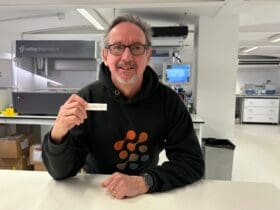Cardiff-based software company Method4 has expanded the available Welsh Government Personalised Assessments for school pupils in years 2-9 and is now developing similar software for use by public bodies in the US and Middle East.
Method4 works in a consortium to deliver the assessment software and framework in Wales, which was rolled out in 2018. The company provides the online platform for the scheduling and delivery of the assessments, along with the framework for delivering the reports. The software initially launched with procedural maths, and Method4 and its associates have now introduced maths reasoning and English language reading to the suite of assessments.
The assessments for pupils in Years 2 to 9 are statutory and can be taken throughout the school year. The assessments are adaptive, meaning the level of difficulty is adjusted based on each pupil’s performance. They provide age-standardised scores and reports to assist with the planning of teaching and learning. Parents are also able to see how their child is performing.
Method4 is now also developing similar software for use by other governments. It will be used for medical students’ assessments in the US and Middle East, and opportunities are being explored to adapt it for use by other educational bodies internationally.
Method4 has grown significantly over the past five years, from a team of 30 to a team of 50, and is now actively recruiting software developers, team leaders, business analysts, scrum masters and agile software developers. Its public body clients include the Welsh Government, Senedd/Welsh Parliament, the WJEC and Education Scotland. Commercial clients include Sony, VocaLink, Mastercard, Pay.UK and LINK.
Neil Huggins operations director for Method4, said:
“We are pleased to have expanded on the work we do for the Welsh Government Personalised Assessments and to be developing similar software for use internationally. This software streamlines the assessment process and it’s adaptive, so it creates a personalised test to suit the ability of each candidate. There is great potential to utilise it in other assessment settings and that is what we are currently doing with the US and Middle East.”









Leave a Reply
View Comments